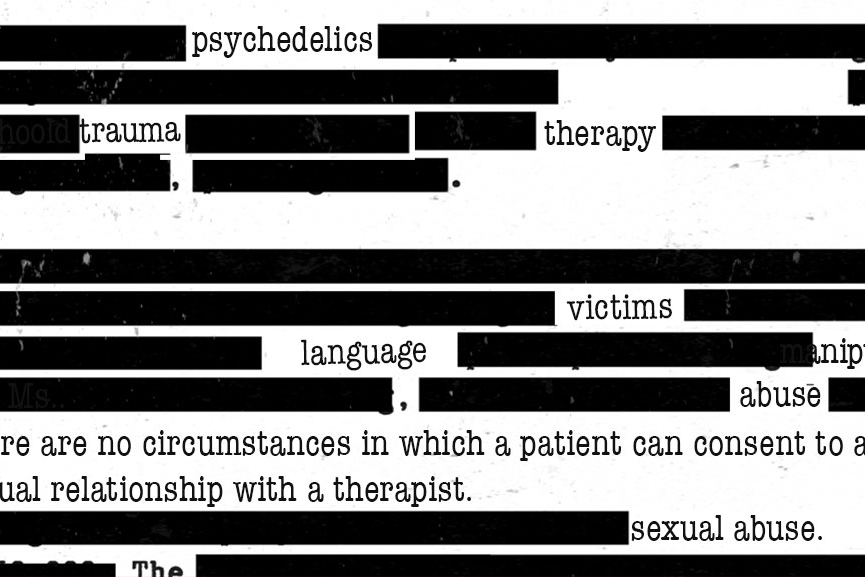A Resource for Journalists Covering Sexual Assault in Psychedelic Therapy
Language used by mainstream media affects the way we think about and respond to sexual violence, and no language is neutral. When journalists repeat the misrepresentations of abusers without qualification, they retraumatize victims and perpetuate ongoing misogynistic views about sexual violence.

Psymposia is a 501(c)(3) nonprofit research and media organization that offers critical perspectives on drugs, politics, and culture. We rely on contributions from our readers and listeners. Your support is vital to sustaining Psymposia.
Support Psymposia’s independent journalism on Patreon and help us drive the Mystery Machine! We’re a bunch of meddling kids who are unmasking the latest shenanigans on the psychedelics beat.
We recognize that it can be difficult as a journalist to remain objective when covering issues of sexual assault. Many well-intentioned journalists have misstated important facts when reporting on Meaghan Buisson’s sexual assaults during a MAPS clinical trial.
We have assembled this resource with the relevant facts to help reporters take an evidence-based and victim-informed approach to writing about her case and others like hers. By getting these facts right, you will help the public to become more informed about sexual violence in the context of a therapeutic relationship.
Language used by mainstream media affects the way we think about and respond to sexual violence, and no language is neutral. When journalists repeat the misrepresentations of abusers without qualification, they retraumatize victims and perpetuate ongoing misogynistic views about sexual violence.
Key Points
1. Appropriate languaging is to refer to the abuse as “sexual abuse”. Any quotes citing the abusive therapist’s claims about a consensual relationship, must be qualified as inherently invalid. There are no circumstances in which sexual abuse of a patient is therapeutic nor acceptable.
See: K. S. Lundgren et al. “Above All: Do No Harm: Abuse of Power by Health Care Professionals”
2. There are no circumstances in which a patient can consent to a sexual relationship with a therapist.
See: F. Baylis, “Therapist-patient sexual contact: a non consensual, inherently harmful activity” (1993)
See: K. S. Pope, “Therapist-patient sex as sex abuse”
3. Therapists who sexually abuse patients often engage in extensive grooming and manipulation. This puts the victim in a state of overwhelming vulnerability and dependency. It is not uncommon for victims to be trapped for years.
See: P. S. Penfold et al., “Why did you keep going for so long? Issues for survivors of long-term, sexually abusive ‘helping’ relationships”
See: Will Hall, Catherine Nugent, Bernadine Fox
4. In Meaghan Buisson’s case, The RCMP (Royal Canadian Mounted Police) recommended multiple charges against the therapist. Even in cases of overwhelming evidence of sexual abuse, extensive barriers to prosecution exist under current legal systems. The overwhelming majority of sexual assault cases do not proceed to prosecution. This does not invalid the legitimacy or severity of the abuse
See: West Coast LEAF “Women’s Experiences of the Barriers to Reporting Sexual Assault”
For more information, please refer to Feministo’s resource of best practices for reporting sexual violence, “Using the Right Words: Media Reporting on Sexual Violence in Canada”
“Rape is violence, not ‘sex’. Reporting on sexual assault means finding not only the language but the context and sensitivity to communicate a trauma that is at once deeply personal and yet a matter of public policy; immediate and yet freighted with centuries of stigma, silence and suppression. Reporting on sexual violence requires special ethical sensitivity, interviewing skills, and knowledge about victims, perpetrators, law and psychology.” – Dart Center for Journalism & Trauma